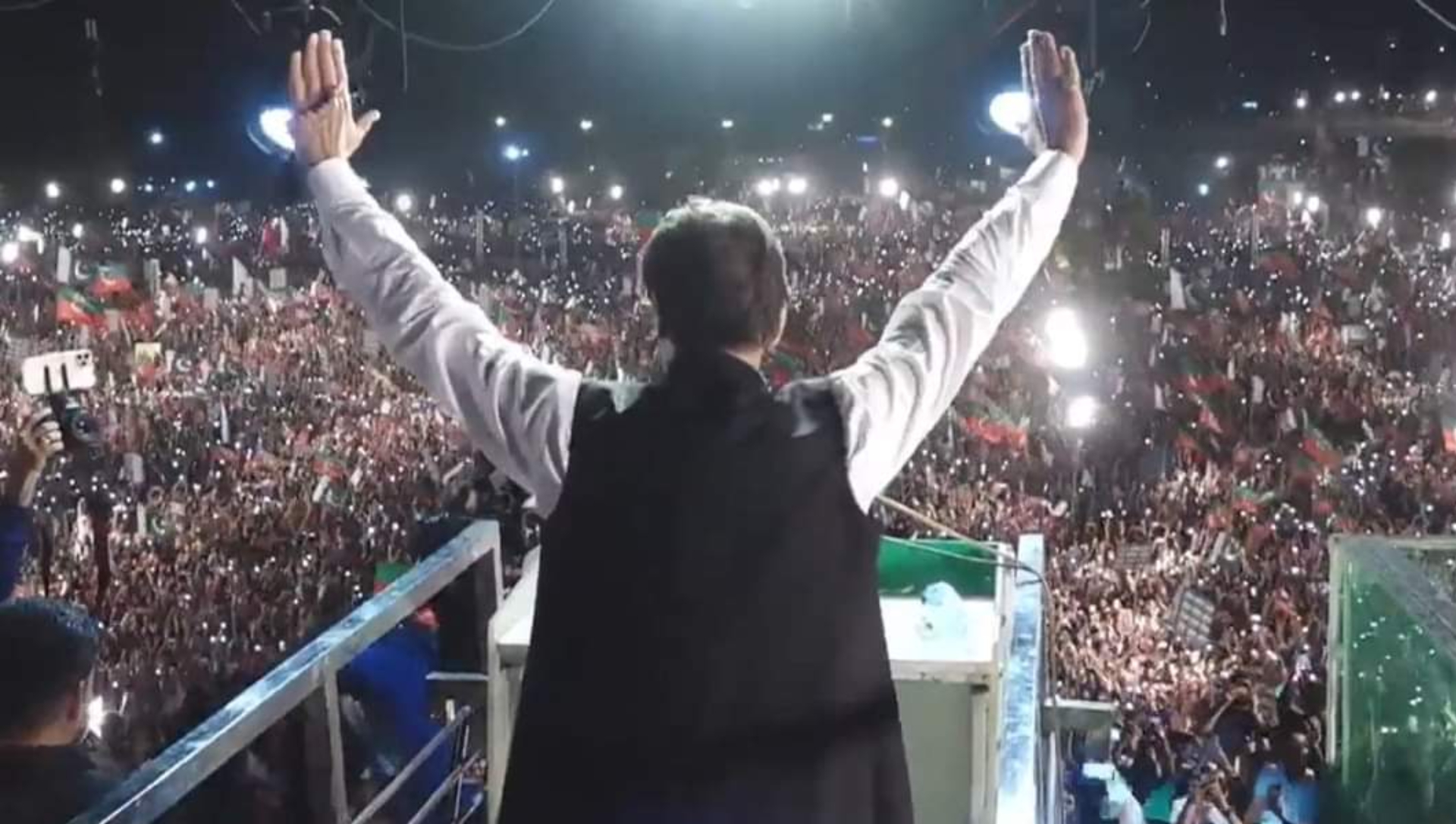Imran Khan’s relentless tirade against the establishment has borne fruits for his chance of political resurgence nationally once again after he was ousted as a Prime Minister four months back. His party’s resounding victory in Punjab by-elections, a traditional bastion of the PML (N) is akin to the fact that Imran Khan is very much still in the fight politically.
While Imran has successfully managed to lay siege to the power holders in Islamabad with Punjab and Khyber-Pakhtunwala firmly under his control, his coup d’etat towards Islamabad seems a real possibility now. It is important to understand the reasons behind Imran Khan’s ouster and his possible return as a future Prime Minister.
Imran Khan rose to power with the support of the Pakistan Army. He positioned himself as the so-called messiah of a common Pakistani who would rescue his country from the clutches of ruling elites who were supposedly responsible for Pakistan’s decades of poor economic plight and political instability. At home, Imran introduced a string of populist policies, which burdened the economy of Pakistan but kept the common man somewhat happy. His policy of subsidized fuel and electricity kept the general discontent among the masses in check. He also managed a positive public perception during the Covid pandemic outbreak. Over the time, Imran also managed to cement deep support within the section ranks and file of the Pakistani army.
Internationally he played his cards openly by aligning himself completely towards the changing Muslim world equilibrium, thus projecting himself and Pakistan as the emerging leaders of the Muslim world. His role in Afghanistan favouring the Taliban was strictly played out of the Pakistani ISI rule book. His chosen ISI chief was instrumental in putting the Taliban government firmly in control soon after the US withdrawal. It is no secret that his open support to the Taliban eventually annoyed both the US and China. Both distanced themselves at a crucial time when Pakistan needed fresh economic impetus to sustain itself.
Lastly, Imran Khan landing in Moscow the same day Russia attacked Ukraine was attributed to him as a huge diplomatic blunder. Slowing economy with fraught diplomatic relations with US and China and dwindling Saudi-Pak relations became the reasons for his nemesis.
But in reality, it was his choice for the appointment of the next Army chief late last year that unnerved the Military establishment triggering his ouster. His open feud with the Army chief General Qamar Bajwa over the appointment of a new ISI chief coupled with the failure to find a fresh impetus to sustain the economy ultimately led the Army establishment to completely pull away its support from him. That allowed the opposition to seize the opportunity by forming a joint alliance and successfully bringing in a no-confidence motion against his government.
But by then Imran had placed his cards well enough, he cried out being a political martyr owing to a foreign conspiracy to oust him. His tirade against the military establishment and the foreign conspiracy theory was so strong that it resonated well with the masses, especially the youth.
He took on the army establishment head-on, albeit carefully, in blaming them to be an accomplice in the foreign conspiracy and some political pundits believe that it left the army establishment shell shocked to react to his allegations. It is pertinent to mention that his strategy forced the army chief to distance himself from the political theatre unveiling in the country. That provided him with an opportunity to contest a largely army establishment interference-free election in Punjab provincial by-elections. His gamble to bet on the tirade against the establishment propelled him to victory.
Imran Khan’s electoral win in the Punjab assembly has spiralled Pakistan rapidly towards overall instability. The biggest impact of political instability is on its economy, which already started to tumble when Imran was ousted as a PM. With the Pakistani currency tumbling against the dollar, the inflation in Pakistan is skyrocketing hence putting the current dispensation in a precarious position politically. The much-required USD4 billion bailout loan from IMF and partners hinges on the mandatory economic reforms, with the common man in Pakistan facing the brunt. As the foreign reserves of Pakistan are at an abysmal low of just USD6 billion dollars, the country going bankrupt is a new reality staring at its face since the window to stop the economic freefall is closing rapidly.
As the common man grapples with steeply rising fuel and commodity prices, Imran is using this as an opportunity to brew a perfect political storm to blow his political opponents away.
Nevertheless, the wheels for early elections have been set in motion with Nawaz Sharif calling out for early national assembly elections. Though the incumbent PM Shahbaz Sharif and his alliance partner PPP chief Asif Ali Zardari haven’t relented yet, it’s bound to happen sooner than later. For now, the current government has its back to the wall owing to the political onslaught Imran Khan has unleashed. With a section of the Army establishment standing firmly behind Imran Khan, will he be able to surmount a large section of the establishment to fight and emerge on top without interference is to be seen? If Pakistan falls bankrupt amidst this political uncertainty, it will be the most discredited phase in its recent history.
Lastly, the never-ending opportunistic struggle for power in Pakistan has turned the country into a political tinderbox. Unfortunately, Pakistani politicians and its military establishment for their own power lust have no regard for the continued suffering of ordinary Pakistanis, who continue to pay the price for its long history of political instability.
(Raja Muneeb is a freelance columnist)
(Disclaimer: Views expressed above are the author’s own)










